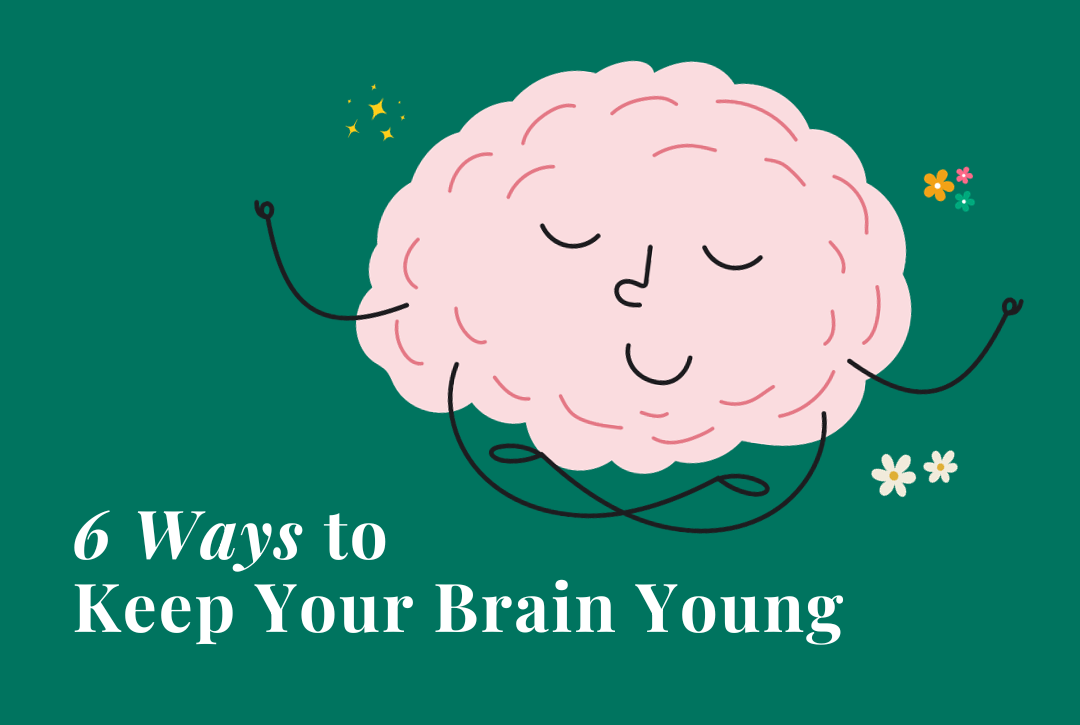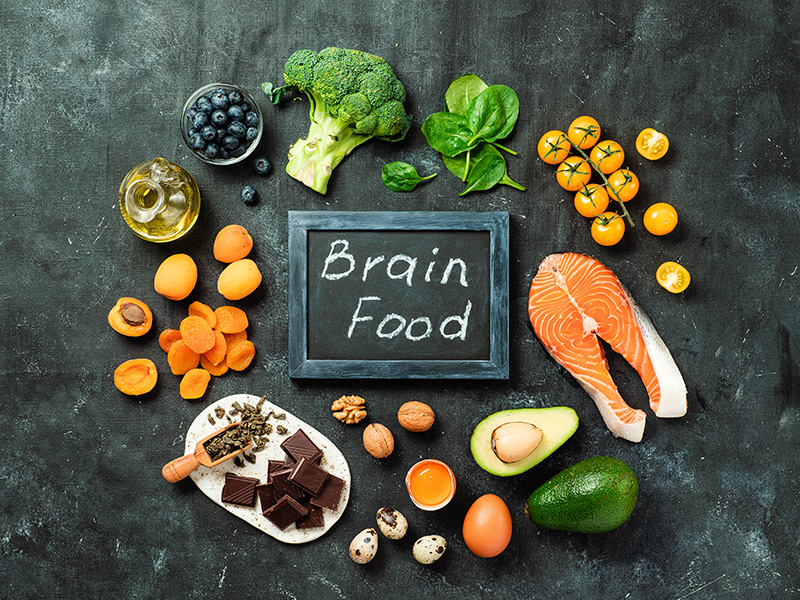Six Effective Ways to Keep Your Brain Young

Physical exercise and a healthy diet are undoubtedly essential to achieving good health. The brain health aspect, however, often goes overlooked. In the same way that we exercise our body, our brain also requires workout to strengthen its functions. These functions include memory recall, problem-solving, concentration, and creativity thinking skills; all of which are pivotal to our overall well-being.
Read on to find out why focusing on our brain health is important and discover ways to effectively improve your cognitive function.
Why is our brain health important?
Our brain or cognitive function plays a crucial role in various aspects of our everyday lives. From planning work schedules to following meal recipes, every task requires our cognitive ability to perform efficiently.
The brain is also responsible for helping us make sense of the world. By keeping our brain sharp, it allows us to enjoy and immerse in our life experiences. A healthier brain also means we are less likely to suffer from dementia and other age-related brain diseases. All these just prove how much our brain health matters.
Ways to Improve Your Brain
Getting your brain to function optimally can work in several ways. Here are some lifestyle tips to boost your brainpower.
-
Get Mentally Stimulated
Working out with your brain is just as important as exercising your body. Engaging in mentally-stimulating activities such as reading, solving puzzles, learning new skills, and playing strategy games are great forms of exercises for your brain.

-
Be Physically Active
Physical exercise not only benefits the body, but it also has positive effects on the brain. When exercising, our brain releases feel-good chemicals like endorphin and serotonin that help regulate our mood. Exercise also fosters mental clarity and improves sleep quality, all of which enhances our brain health and overall well-being. Whether it is swimming, jogging, or simply strolling around the park, any form of physical activity is beneficial to your brain health.
Not sure what activity interests you most? Try out different activities to find one that you truly enjoy. Loving what you do increases your chances of staying committed to the activity in the long run. To maintain your fitness, incorporate a thirty-minute fitness regime at least three times a week.

-
Consume a Brain-healthy Diet
A well-balanced diet that consists of fruits, vegetables, whole grains, and lean proteins is essential for brain nourishment. On the other hand, limit the consumption of processed foods, sugar, and unhealthy fats as they will accelerate the ageing process of your brain.
Certain foods have been known to boost brainpower due to their rich antioxidant and anti-inflammatory properties. Also known as brain foods, some of these include blueberries, leafy vegetables, green tea, eggs, and walnuts. If you are into a supplementary diet, look out for brain-enhancing nutrients such as omega-3 fatty acids, ginkgo, or turmeric.

-
Get Plenty of Sleep
The amount of sleep we get affects our brain health. Long-term sleep deprivation has been associated with cognitive impairment and dementia, so getting enough shut-eye every day is important. Aim to establish a regular sleeping schedule with seven to nine hours of restful sleep each night.

-
Manage Your Stress
Did you know that chronic excessive stress has detrimental effects on our brain function? Apart from negatively affecting our emotional well-being, it can also impair memory and kill off our brain cells. To keep stress at bay, take some time off to engage in hobbies that will uplift your mood. Mind-body exercises like yoga and meditation are also effective in promoting mental clarity and reducing anxiety.

-
Maintain Social Connections
Strong social connections and meaningful relationships have been linked to better brain health because they help prevent mental decline and depression. Keep yourself socially engaged by bonding with family, friends, or interest groups through various social activities. Getting involved in community events or volunteer work is also a great way to form social connections with others.

How does our brain decline with age?
While the process of ageing may cause some mild changes in cognition, it does not lead to dementia. In general, age-related declines are subtle and it should not affect our activity of daily living.
Making proactive choices such as maintaining a healthy diet and practising self-care can ensure that your brain stays sharp and agile, even at the mature stage of your life.

This article is reviewed by:
Dr Tham Keng Seng, Specialist in Psychiatry and Consultant, Raffles Counselling Centre



















